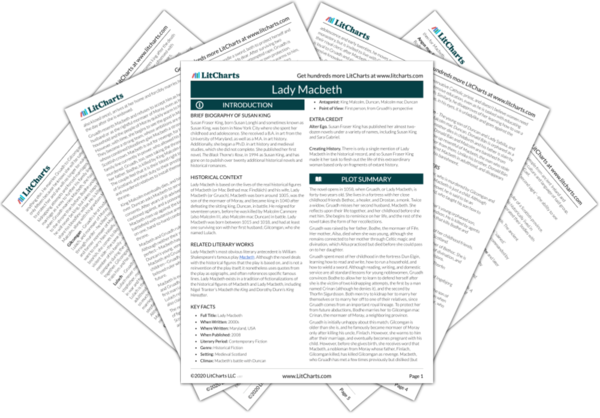Although Macbeth has limited lands and is not a mormaer, and although she does not fully get along with him, Gruadh recognizes that Macbeth’s ambition and heritage would make him a good husband, and a good match for her and her family’s ambition. Macbeth’s continued warnings foreshadow his own anticipated revenge against Gilcomgan, which will affect his new wife as well.
